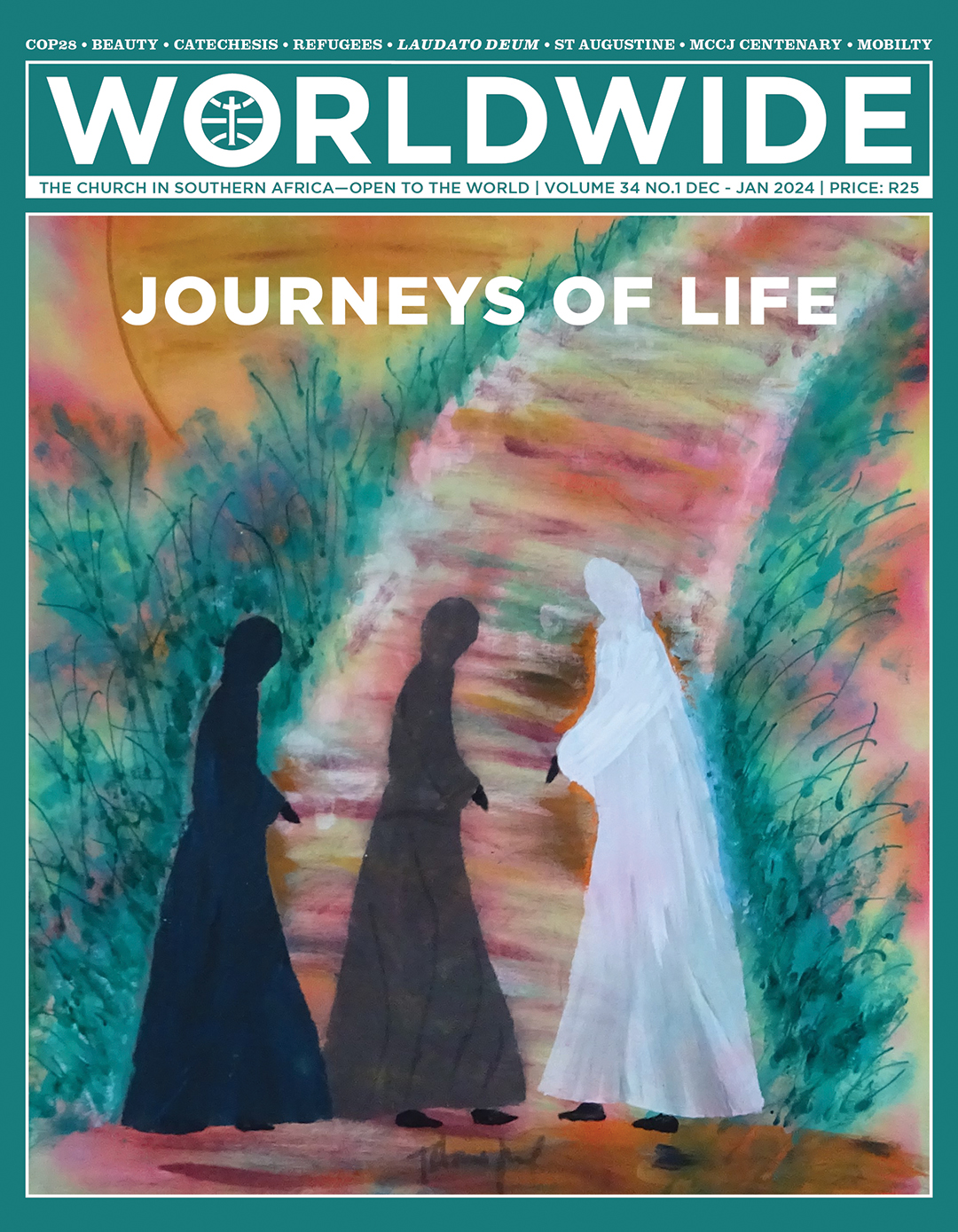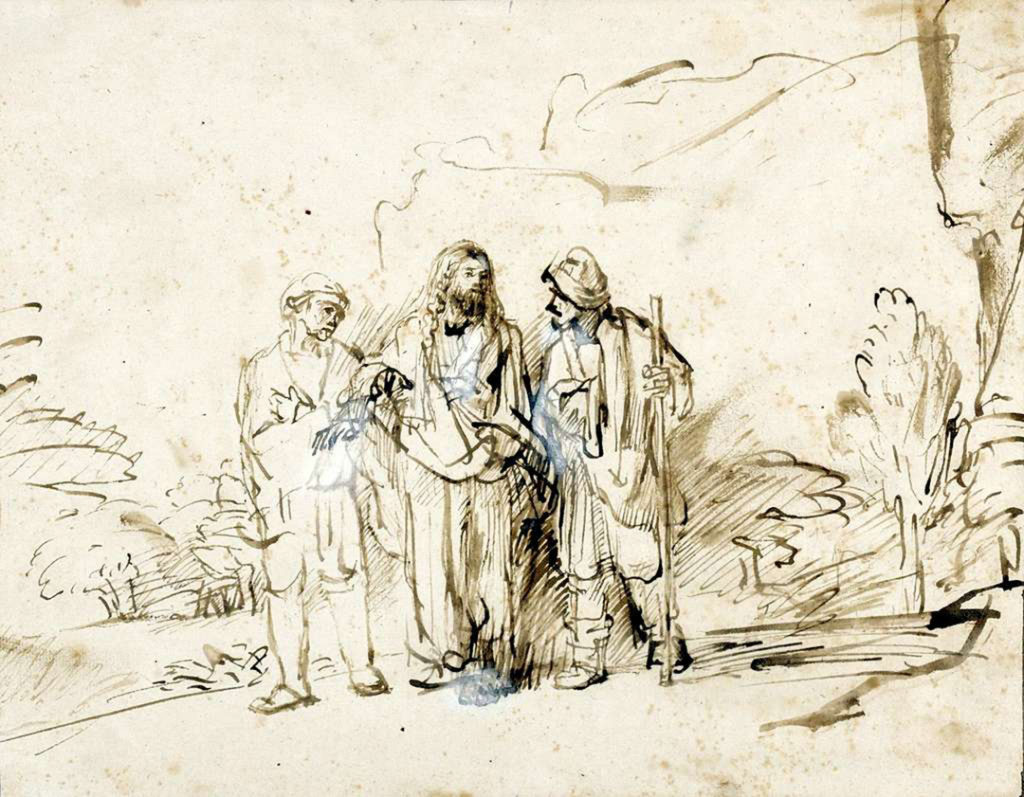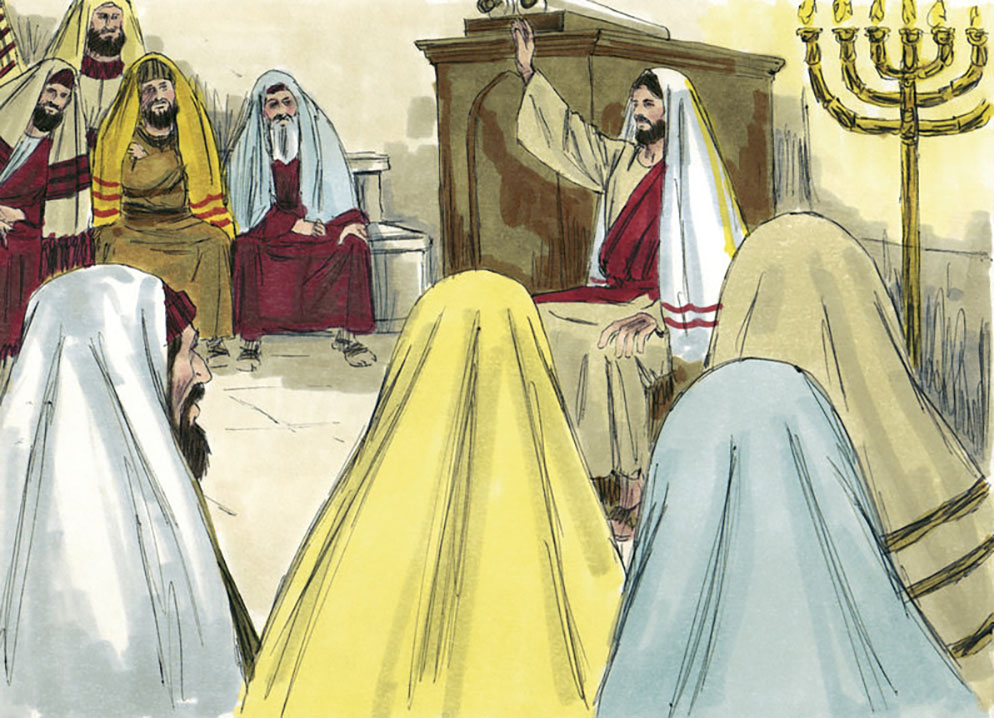
JOURNEYS OF LIFE
The painting on the front cover entitled “The disciples of Emmaus” reflects our journey of hope. Jesus not only walks with us, but gives us the wisdom to perform our ministries and opens our eyes to see Him in the people that we are serving.
THE LAST WORD

“THEY RECOGNISED HIM IN THE BREAKING OF THE BREAD” (LK 24,13-35)
BY Fr Silvano Fausti SJ | Biblist and writer
THROUGH THIS episode, Luke shows us how the risen Lord is still present today in our lives as believers and how we can encounter Him. The two pilgrims symbolise the journey of the church. They change their hearts, faces and paths when they “experience” the Living One at the twofold table of Word and Bread.
The two disciples are transformed from “not recognising” (v. 16) to “recognising” the Lord Jesus (v. 31. 35). Luke portrays in them the synthesis of the whole process proposed to the disciple. From the very beginning of his Gospel, he set out to make Theophilus “recognise” the soundness of the word in which he was instructed (Lk 1:4). He does so in two successive stages, corresponding to the two parts of his Gospel: listening to the Lord and proclaiming the Word, and seeing His face as He breaks the bread. The centre of the twofold catechesis is the mystery of the Son of Man who died and rose again, before whom every man “is headless and slow of heart to believe” (v. 25; Lk 9:45!).
The two disciples know the Scripture. However, they reject the scandal of the cross, ignoring the fact that it is the key to enter and understand it. The Lord who died and rose again – of whom the Gospel tells us and whom we remember in the Eucharist – is the fulfilment and explanation of the entire plan of salvation.
“Truly the Lord is risen and was seen by Simon!”. The period during which He was seen is now over. With His ascension the revelation came to an end, because it was completed. We have seen neither Him nor those who saw Him. We are Christians of the third generation. We base our faith on the word handed down to us by the testimony of the eyewitnesses (Lk 1:2). We too, like the women and like Peter, can make a pilgrimage to the tomb, finding it empty. While the Living One is not there, He has not left us. He is on the streets of the world, until His kingdom will be fulfilled. He, the only Son, has gone out in search of the other ninety-nine lost brothers and sisters. He follows them, meets them and accompanies them, to transform their exile from a flight into a pilgrimage, from sorrow, to a joyful rush towards the Father’s house.
In a similar way to that of the two men of Emmaus, He makes himself close to us. He accompanies us on our steps of both disappointment and hope, of death and life. He meets us in our daily vicissitudes as wayfarers, associating Himself with our journey wherever we go. He does not turn away from us, even when we are turning away from Him. The Son of Man came to seek and to save what was lost (Lk 5:32; 19:10).
When our hearts are dead and frozen and our eyes, possessed by fear, unable to recognise Him, He Himself opens the Scriptures and opens our eyes wide. Even though He is invisible to our physical sight, we know that He has entered our lives and will remain with us. Through His power we are able to undertake the holy journey, which puts us in communion of faith and life with the first disciples. We too “recognise” the Living One through the proclamation that reveals Him risen, the remembrance of His word and His gesture of breaking bread.
God is the Emmanuel. He is not just ‘He who is’, but ‘He who is with us’. He is love, victory over loneliness and death. That is why He remains forever with us, indeed “in us”. For “He who eats my flesh and drinks my blood abides in me and I in him” (Jn 6:56). The Word and the bread, with which He abides in our spirit and flesh, are the viaticum of the church, until the end of time. Man becomes the word he hears, and lives by the bread he eats. The word and the body of the Son assimilate us into Him, granting us His own Spirit, which is the strength to live as children of the Father and as brothers and sisters among ourselves.

